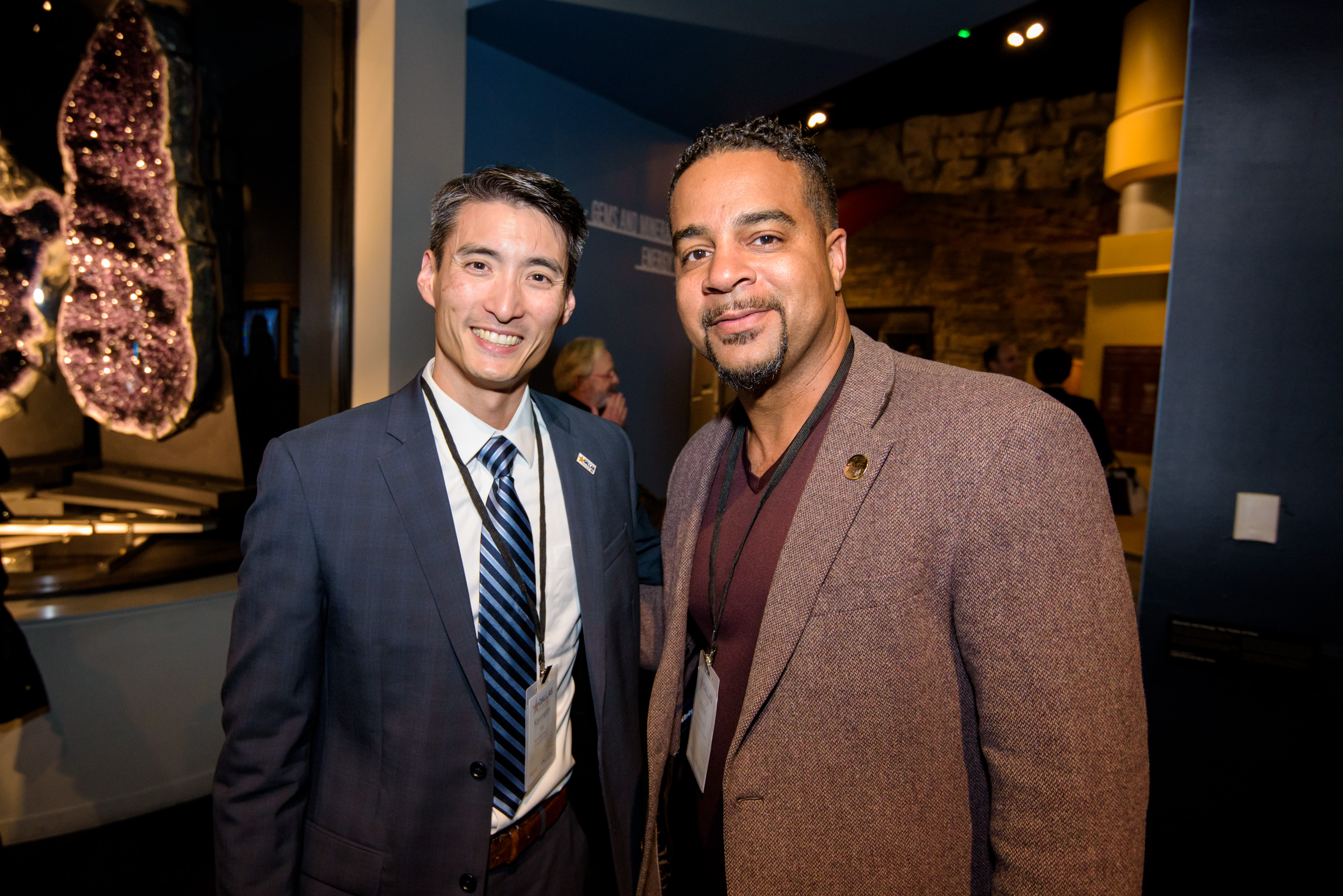The Leadership Exchange (LEX) trip is an excellent learning lab for the Leadership Foundation’s values. While the principle attributes embedded in Colorado’s Civic DNA™ are necessarily broadly stated, LEX Dallas offered specific and tangible ways that values like inclusivity and collaboration are actualized. The thoughtful design of LEX Dallas and the curation of leaders on the trip assisted in creating meaningful and synergistic learning experiences each day.
My first LEX trip was laden with pleasant surprises. However, one experience stands out. Loosely aware of a few cultural organizations in Dallas, the trip presented itself as a particularly beneficial opportunity to pursue considering the work our organization does within the context a growing arts ecosystem in Denver. A few months prior to the trip, I petitioned the Leadership Foundation to schedule a tour with Dallas Black Dance Theatre, a sister company of Cleo Parker Robinson Dance that is located in the Dallas Arts District. To my delight, the Leadership Foundation was already designing an experience in the district with its key partners, which included Dallas Black Dance Theatre. The excursion provided a unique opportunity for me to learn the depth of which the City of Dallas is boldly investing to create a city more inclusive for many residents who have been historically marginalized living in Sorth Dallas, a predominantly Black neighborhood roughly the geographical size of Atlanta. In 2018, Dallas City Council unanimously approved the new cultural plan that comes with policy changes and funds driven by a renewed value for equity.
This is important and directly related not only to our assessment of the evolution of the Denver Performing Arts Complex but also those cultural nodes that serve as connective tissue throughout our city. Centuries ago, the prerequisite for a first-class city was to have a symphony, opera and ballet – all European-centered ideas of artistic necessities. Several years ago, the Dallas Ballet folded while Dallas Black Dance Theatre continued to thrive. Today, DBDT is no longer considered optional; it is now essential and officially an integral part of their city’s cultural fabric, firmly situated within the arts district. Now that institutions and cities are striving to be more inclusive and advancing ideas that uplift and celebrate what makes us unique as Americans, it is encouraging to see models like Dallas emerge. Even more so, it is exciting to know that Denver’s political and business leadership are also challenging antiquated systems and habits of thought that have prevented greater connectivity and civic engagement.
Malik Robinson is the executive director of Cleo Parker Robinson Dance, and this is his first Leadership Exchange.

